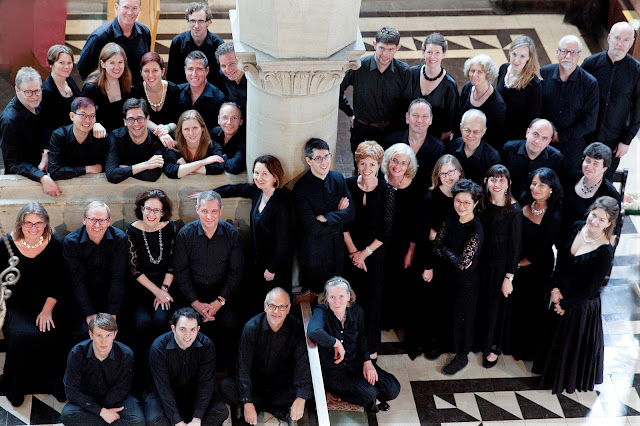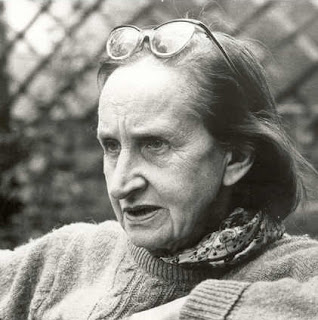 |
| Andrew Griffiths and Londinium (Photo Sheila Burnett) |
 |
| Elizabeth Lutyens |
It is this connection which links the composers on the choir Londinium's first disc, The Gluepot Connection, an exploration of the unaccompanied choral music of this fascinating group of composers. The choir, artistic director Andrew Griffiths, recently had their recording sessions in All Hallows Church, Gospel Oak (with recording engineer Adrian Peacock) and I went along to listen, and to chat to Andrew Griffiths.
 |
| Alan Rawsthorne in April 1949 (photo BBC) |
Andrew has tried to select music from the Gluepot period (1920s to 1950s), though this has not always been possible. Andrew feels that the composers in the list provide an interesting view of mid 20th century British composers, an alternative to the Britten/Tippett axis, and it is a varied mix from Ireland, Walton and Bax to Humphrey Searle and Elizabeth Lutyens. Andrew calls the Rawsthorne pieces on the disc 'bracing' and neither the Bush nor the Rawsthorne pieces have been recorded before.
This is an important point, the choir celebrated its 10th anniversary last year and the recording is something of a 10th birthday present. It could easily have become simply a vanity recording, but the distinctive repertoire and the first recordings makes them feel that the disc is adding something. As a London-based choir, the connection of all the pieces with such a London location is very apt, and there are additional links. Walton's Where does the uttered Music go? (with a text by John Masefield) was written in 1946 for the dedication of the Henry Wood Memorial Window in the Musicians' Chapel at the church of St Sepulchre without Newgate, which is where Londinium regularly performs.
Whilst I was at the recording session I overheard them recording John Ireland's The Hills which is a very traditional part-song like piece. Written by Ireland in 1953 in honour of the Coronation, it feels rather old-fashioned for the period yet beautifully crafted. By comparison, Alan Bush's Like Rivers Flowing (setting words by his wife Nancy) was written in 1957 but feels much more adventurous, even though Bush is writing accessible music it has his distinctive voice.
 |
| Nancy and Alan Bush (Photo courtesy of Alan Bush Music Trust) |











No comments:
Post a Comment